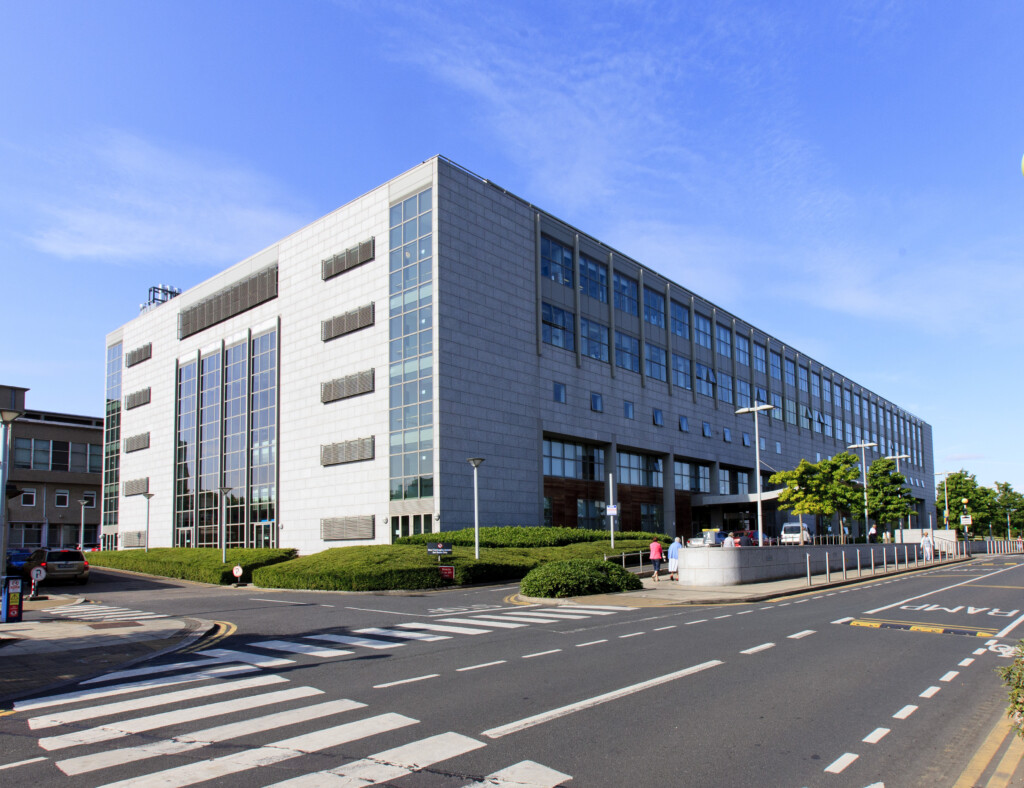A new national treatment service for people with neuroendocrine tumours (NETs) has been formally launched by St. Vincent’s University Hospital (SVUH), supported by the National Cancer Control Programme (NCCP) and the Department of Health.
The treatment involves Peptide Receptor Radionuclide Therapy (PRRT), which delivers precise radiation to cancer cells, minimising damage to surrounding healthy tissue.
The treatment has been available in SVUH since October 2023.
Before this, all eligible Irish patients had to access the treatment under the HSE Treatment Abroad Scheme.
Providing the service in Ireland marks a significant leap forward in cancer care for patients with NETs.
In advance of the launch, Minister for Health, Stephen Donnelly TD welcomed the commencement of the PRRT for NETs service at SVUH, highlighting its significance in bringing novel treatments closer to patients.
“The launch of this service today means that as the service grows, patients will no longer have to travel abroad to access this treatment and will, instead, have access to this novel treatment in Ireland for the first time and can remain closer to their home, families, and support networks,” he said.
“This development is a direct result of the investment by Government in cancer services as part of the National Cancer Strategy over the last number of years along with ring-fenced funding for new drugs with clear evidence-based policy direction from my Department and strong implementation by the HSE’s National Cancer Control Programme.”
The Department of Health’s National Cancer Strategy 2017-2026 enabled the NCCP to provide funding to establish this service in Ireland at St. Vincent’s University Hospital.
Professor Risteárd Ó Laoide, National Director, National Cancer Control Programme, HSE, said:
“The repatriation of this service is the culmination of more than three years of collaborative work between the NCCP, St. Vincent’s University Hospital and the Department of Health.
“The availability of this treatment will help to strengthen the network of care for patients with NETs in Ireland.
“This is all part of the wider collaboration and collective development of services for patients with NETs, including a shared multidisciplinary team meeting and consistent access to the best available diagnostics, multidisciplinary treatment planning and treatments.”
Spearheaded by the NETs team at SVUH, led by Professor Dermot O’Toole and the Nuclear Medical Team led by Dr. Stephen Skehan, Dr. Nicola Hughes and Dr. Mathilde Colombie, the PRRT for NETs service is expected to grow incrementally over the next two years.
This will result in access for all eligible patients to this therapy without the need to travel abroad. St. Vincent’s University Hospital’s comprehensive approach to patient care will ensure that individuals from all corners of Ireland can benefit from this transformative therapy.
As the programme continues to grow, the hospital remains committed to providing accessible and high-quality PRRT for patients with NETs to meet the evolving needs of cancer patients nationwide.
Speaking on behalf of the clinical team involved in delivering this service, Professor Dermot O’Toole commented: “The introduction of PRRT for patients with NETs is something that the clinical team here have been striving for over several years.
“We are delighted that we can now offer this crucial treatment to our patients. I am grateful to everyone involved in the multidisciplinary clinical team that has made this possible and to the National Cancer Control Programme and the Department of Health for their continued support.”
Tommie Gorman, a patient who previously had to travel abroad for PRRT treatment, shared his experience.
“In 2008, I was the first Irish patient to utilise the Treatment Abroad Scheme E112 to access PRRT treatment abroad. It has been an important missing piece in the jigsaw,” he said.
“Mainly Irish patients have travelled to Sweden, the Netherlands, and the UK to access this treatment.
“It is a significant advance to now have this treatment available in our own country at our national centre of excellence.
“It’s a great credit to St. Vincent’s University Hospital and all involved.”
